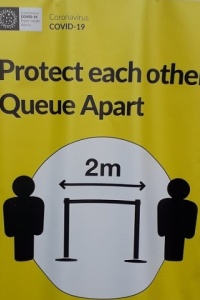Five Ways in which Global Educators can respond to the COVID-19 Pandemic

Five Ways in which Global Educators can respond to the COVID-19 Pandemic
Five months ago, 9,000 nurses from the Royal College of Nursing (RCN) went on strike in the north of Ireland for the first time in the union’s 103-year history. Seeking pay parity with their colleagues in England, Scotland and Wales, the RCN estimated that nurses’ pay in real terms had fallen by 15 per cent over eight years and they’d ‘had enough’. Going on strike was a last resort, but staffing shortages and low pay had created ‘unsafe’ services for patients. Fast forward to the midst of an unprecedented global pandemic, COVID-19, and we see nurses and other frontline health workers feted from their windows and doorsteps by a grateful public in lockdown. The nurses’ strike was one local example of how ‘development’ had moved too far in the direction of the market and away from the social needs of citizens.





